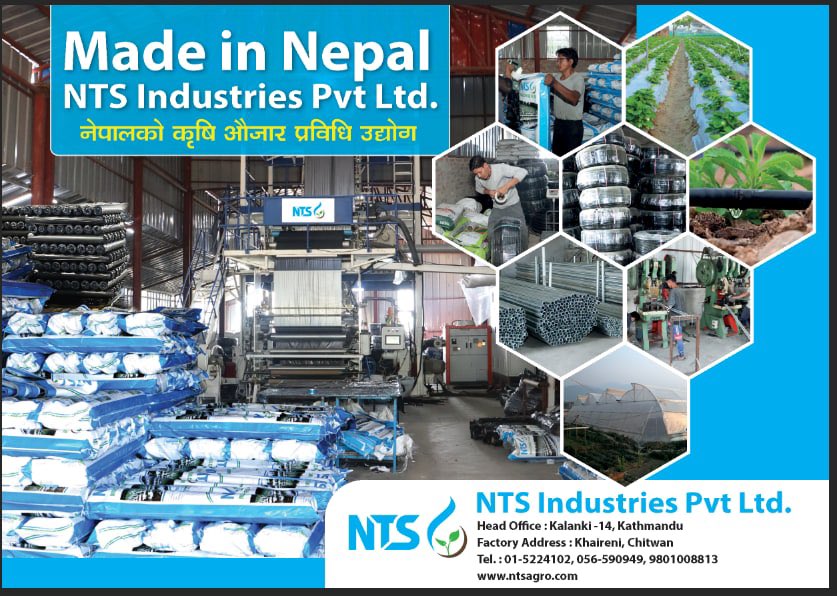Everything in the world has some pros and cons. As a result debate always happens and Genetically Modified Organism (GMO) is not exception. GMO, in simple language, is any organism whose genetic make-up has been altered. Gene is basic constituent in living organism which determined each and every characteristic – like height, colour, taste, smell, everything. Your hair colour could be black or white or brown; your height could be tall or dwarf; everything is expression of your genetic make-up. 
Lets us focus on agriculture. In agriculture, each GMO implies improvement of crop with specific trait. For example, Golden Rice – it is β-carotene (precursor of Vitamin A) included GMO rice. Originally, rice doesn’t contain any ß- carotene. Two genes – “psy” (phytoene sysnthase) from Daffodil plant and “crtl” (carotene desaturase) from soil bacterium Erwinia were inserted in rice to make Golden Rice.
Why people want GMOs
Many people are advocating for GMOs considering several reasons. First reason is to feed growing population. United Nations Department of Economics and Social Affairs, in its report in 2015, forecasted that the population on the earth will be 8.5 billion by 2030, 9.7 billion by 2050 and 11.2 billion by 2100. Similarly, Food and Agriculture Organization of the United Nations (UNFAO) in its report “How to Feed the World in 2050” said that to feed people in 2050, we have to increase our agriculture production by 70%; and more importantly, it said that 80% of total increment would come from increase in yields and cropping intensity; remaining 20% from expansion of cultivable land. And, it is very clear that achieving such a big target from the traditional technique is almost impossible. Thus, scientists working in GMOs technology strongly believe that it is unavoidable to feed ever growing population.
Second logic is scientific basis of the GMO technology. Scientists working in this field are claiming that GMO technology is not entirely new technology. It is just up-gradation of traditional breeding technology. Pamela Ronald, an American plant pathologist and geneticist said in one famous talk program that everything we are eating is some sort of genetically modified food. She also questioned that if we don’t improve crop with GMO technology, it will be infected by disease-pest and farmers have to spray chemical; so, will it be safe enough to eat that food? Similarly, scientists claimed that Cauliflower and Brussels sprouts which we are eating safely since long, is also not original plant rather it is mutant of Cabbage.
Third logic for GMOs is changing climate. Intergovernmental Panel on Climate Change (IPCC) forecasted that by 2050, C02 concentration will be 463-623 ppm (which was 354 in 1990), global temperature will be increased by 0.8 – 2.6°C and global sea level will be raised by 5-23 cm. Not only that erratic rainfall, incidence of new disease-pest, occurrence of drought and flood, drastic change in other weather parameters are experiencing by farmers. Thus, many scientists believe that GMOs could be best option to adapt changing climate.
Forth reason to support GMO is for environment. One study assessed that adoption of GMO crop has reduced use to pesticide spraying by 581 million kg during 1996 to 2014. It claimed that in the USA alone, reduction of pesticide was 46.4 million pounds in 2003 and in China, only for Bt Cotton (GMO cotton), 78,000 tons of formulated pesticide was reduced in 2001. Thus, who are for GMOs claimed that it is very good for environment too.
Finally, in reply of people who are against GMOs, many scientists are claiming that GMOs are safe to eat. Since introduction of GMO soybean in the USA, many people in world including Korean people are consuming and no health complexity has been reported yet. Likewise, World Health Organization (WHO) said that individual GMO should be assessed separately because in each GMO included gene and process of gene insertion are different. Nevertheless, it claimed that GM foods currently available on the international market have passed safety assessments and are not likely to present risks for human health.
Why People Oppose GMOs?
Despite several justifications provided by advocators for the GMOs, still large numbers of people are not ready to accept it and they are opposing on production and consumption of the GMOs. Let’s discuss why they oppose GMOs.
Very first reason behind opposing GMOs is food safety. Although, WHO said that GM foods in current international market has passed food safety assessment but from the language used by WHO shows lesser degree of confidence on it. It said “not likely to present risks for human health” rather than “it is safe to eat”. Many people doubt on stability of inserted gene and skeptical on further reaction after consumption. Similarly, many people believe that safety assessment should be done for at least a generation. Even though, GMO food may not affects immediately after consumption, it may impart deleterious effect on next generation.
Second logic behind not accepting of GMOs is provision of intellectual property rights (IPRS) and market monopoly. According to the Intellectual property rights, if you develop anything noble that can be protected by law to reproduce, copy and any other profit earning business without consent of copy right owner. In case of agriculture, if farmer grow any GMO seed without proper agreement between owner and farmer, the owner of seed copy rights will file a case against farmer and if it win farmer has to pay large amount of money. It means global seed market will be monopolized by certain big business houses like Monsanto.
Third issue to oppose GMOs is its socio-economic factor. Using IPRS certain big company will monopolize global seed market as mentioned in previous paragraph. It has long term socio-economic impart on world farmers. Many people believe that using GMO crop will shift farmers from mix cropping to mono-cropping; and more importantly, it will threat local land races and a day will come when farmers have no choice except buying GMO seed at give price – no matter how expansive will it be. Otherwise they have to leave farming. It is worst case scenario. Not only monopoly, but case of farmers’ suicide in GMO growing farming community in India and other country has serious socio-economic issues. A prominent figure against GMO, Dr. Vandana Shiva in her interview with the BBC, few year back, claimed that sever hundreds farmers committed suicide in India due to GMO cotton. She also claimed that total production in the farmers field is lower with GMO crop that non-GMO crop. She explained her proposition as although yield of GMO crop is higher, total production getting by same farmer previously without GMO crop was much higher. It is because before GMO crop, farmers used to do mix-cropping and they were producing many other crops but in case GMO crop, it is mono-cropping thus total production or return is less despite higher yield of GMO crop. Not only that, due to GMO crop, biodiversity is being adversely affected whose cost is much higher than return from GMO crop yield. Similarly, people counter logic of GMO advocator “to feed growing population”. They believe that still the world agriculture production is not so worst that 800 million people have to stay hungry. The issue is in distribution and utilization of agriculture produce. Thus, just by increased yield won’t feed 9.7 billion people in 2050.
Forth factor against GMOs is on ethical ground. Many people believe that altering natural genetic make-up is unethical. They are also much skeptical about misuse of this technology. They said they it may lead to plant factory to human factory. From same technology, even human could become GMO. By inserting genes in human what they like – for example if factory needs strong man to do labour, some gene from strong animal could be inserted. Once we discussed about Photosynthetic-Human. It means, plan prepare their food utilizing sun light, water and carbon dioxide by the process called photosynthesis. So, if we make GMO-Human with photosynthetic attribute, food security and hunger will no longer be a global issue. But, the issue is whether it is ethical or not?
Final reason to resist GMOs is environmental aspect. Many people are skeptical about out cross breeding between GM crop and weedy relatives as well as the potentiality to develop weedy species. Similarly, one study showed that Bt-Corn (GMO maize) had negative impact to Monarchs butterfly larvae that is not harmful to crop. These are few example of the environmental impact of GMOs. FAO said that to evaluate impact of new biological elements in ecosystems may takes years or decades to be understood. One very good example of environmental effect is case of “Diclofenac” drug. Diclofenace was heavily used in animal to treat pain, inflammatory disorders and dysmenorrheal since long. Later population of scavenging birds, like vulture, declined sharply. After long research, it was found that the cause of death is Diclofenac and now many countries have already banned this drug for veterinary use.
Summary
Nothing is perfectly bad or perfectly good. So, it is determined by its use, intention and context. And, same applies to the GMO. Similarly, there is always a trade-off – if we want to gain something, we have to lose something because at macro-level we usually assume zero-sum game.
An example of atomic energy could be appropriate to understand the fate of the GMOs. The concept of particle was very ancient but from the first decade of 20th century it took pace. In 1898, Pierre and Marie Curie discovered radium which emits large amounts of radioactivity. Several efforts were made after that and in 1938, Otto Hahn and Fritz Strassmann reported atomic fission and production of huge energy. After that so many scientists spent their life to explain it, supposing it could be a boon to the energy thirsty globe. But, unfortunately, currently, the world is targeting North Korea over their nuclear program. It means, science and technology could be misused very easily because the world is eye-witness of 1945’s “Little Boy” and “Thin Man” in Hiroshimma and Nagasaki respectively. Thus, we must have appropriate safety measures to avoid misuses and its use against humanity.
People still are forced to sleep empty stomach every day; and more importantly, global population is growing up rapidly and effect of clime change can’t be over-ruled. It is our responsibility to feed people sufficiently. But, food must be safe to eat and safe to produce. Similarly, benefit sharing can’t be underestimated. Farmers should be respected because they are the persons who saved genetic diversity from the history. So, after just a small manipulation on genetic make-up, they should not be kicked out from benefit sharing – they must have stake on benefits. Likewise, sometime, GMO becomes politics rather than science and technology alone. So, these two aspects should be treated separately.
Until advocators of GMOs satisfy the issues raised by people against GMOs, the debate will go on. Similarly, if we want to reject GMO technology, we need to give alternative technology to address current and upcoming issues of food security and climate change. Moreover, just debate will not solve the problem. We need action. – Arun GC






Add Comment